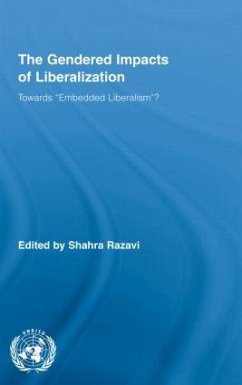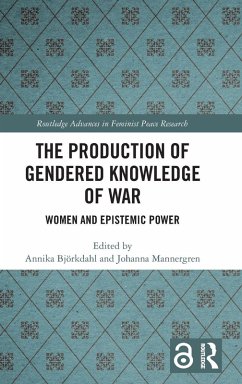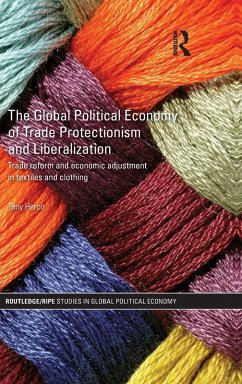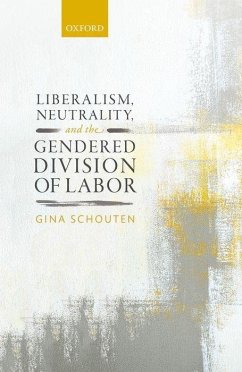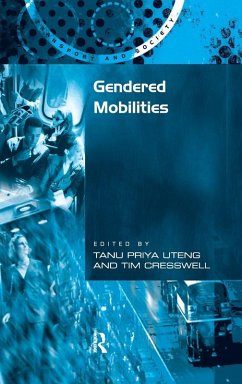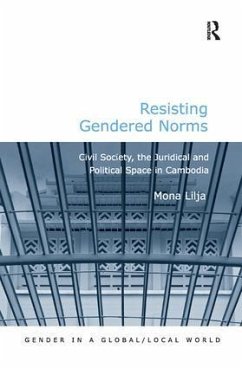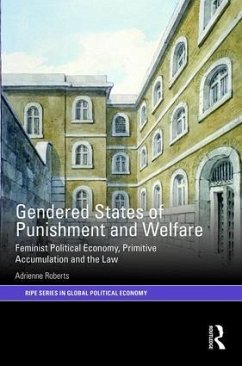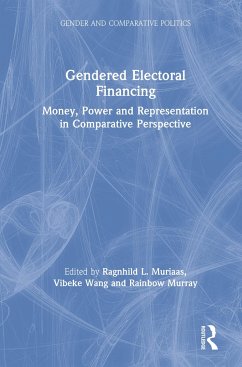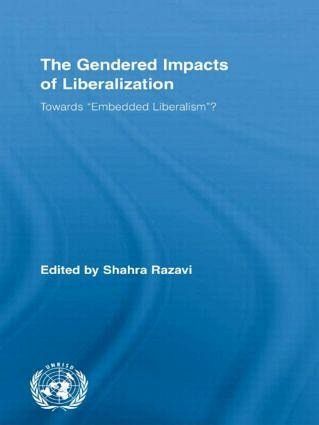
The Gendered Impacts of Liberalization
Towards "Embedded Liberalism"?
Herausgeber: Razavi, Shahra

PAYBACK Punkte
35 °P sammeln!
This volume addresses key issues and questions surrounding the debates about globalization and liberalization policies, including whether states have the capacity to remedy the social distress unleashed by liberalization and whether the proposed social policy reforms can redress gender-based inequalities in access to resources and power.





